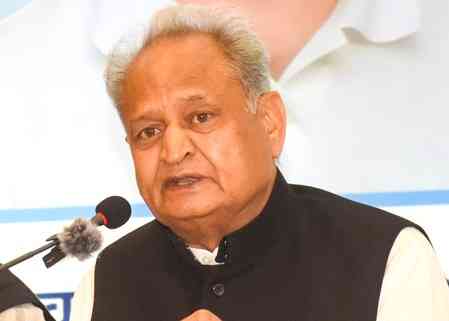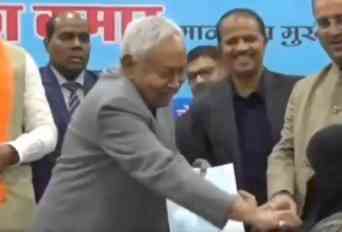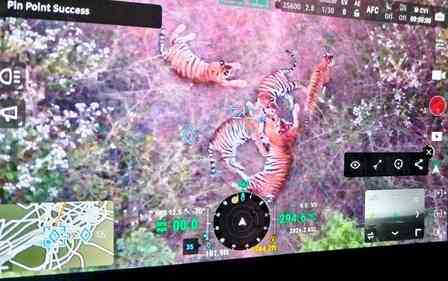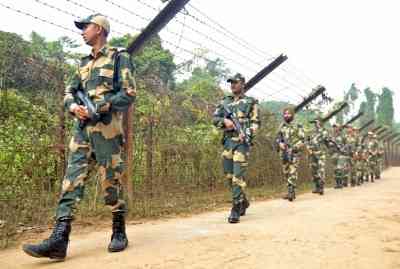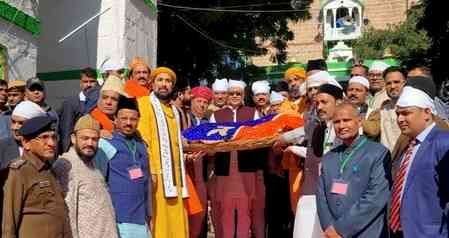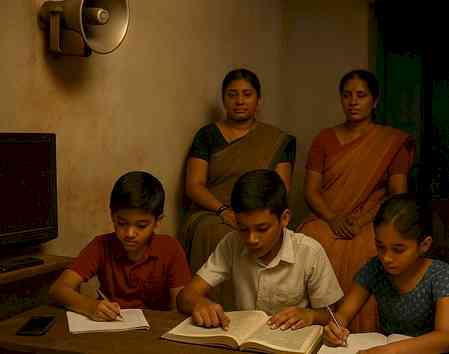Vandalisation of region's iconic figures' memories in B'desh draws widespread condemnation in NE states
Amid the continued unrest in Bangladesh, the attackers, according to various reports, did not even spare a statue, and several photographs of iconic Indian personalities besides badly damaging the Indira Gandhi Cultural Centre (IGCC) in Dhaka.
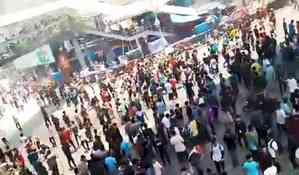
Sujit Chakraborty
Agartala/Shillong, Aug 7 (IANS) Amid the continued unrest in Bangladesh, the attackers, according to various reports, did not even spare a statue, and several photographs of iconic Indian personalities besides badly damaging the Indira Gandhi Cultural Centre (IGCC) in Dhaka.
According to media reports and several clips circulated on social media, the attackers destroyed a life-size photo of Tripura’s erstwhile king Bir Bikram Kishore Manikya Bahadur in Comilla, besides vandalising a statue of U. Tirot Sing, a freedom fighter from Meghalaya’s Khasi Hills, in Dhaka, leading to widespread condemnation from several quarters in the northeastern states.
Bir Bikram ruled the princely state of Tripura from 1923 until his death in 1947.
The attackers also burnt down and destroyed a large portion of IGCC, which was inaugurated in March 2010 to promote cultural ties between India and Bangladesh by organising seminars, workshops, and various cultural events.
Run by the Indian Council for Cultural Relations, the IGCC had a library with over 21,000 books.
The IGCC also held regular training courses on various cultural elements including yoga, Hindustani classical music, dance, etc.
Earlier, Tripura’s 570 sq miles of moderate plains in Comilla, Noakhali, and Sylhet districts in East Bengal, adjacent to the western part of Tripura, was known as Plain Tripura or Chakla Roshanabad and was part of the princely Tripura Zamindari.
After India's Independence, this Chakla Roshanabad was completely lost as it was included in East Pakistan, or present day Bangladesh.
Tripura shares an 856 km border with Bangladesh.
Writer and political commentator Tapas Dey said that there were many memorials and assets, some of which were in Bangladesh’s Comilla, Brahmanbaria, and Sylhet that were either destroyed or encroached upon over the years.
“In the latest violence, the remaining memorials and assets, which showcased princely Tripura’s existence in Bangladesh, have been destroyed by the attackers. However, the full details are not yet available with us,” Dey, known to be close to Tripura’s royal family, told IANS.
Another northeastern state, Meghalaya, which shares a 443 km border with Bangladesh, also shared close links before Bangladesh became a sovereign country in 1971.
Tirot Sing, a freedom fighter known as the 'Hero of the Khasi Hills’, led a war against the British against the latter's attempts to take over control of the Khasi Hills in 1829.
He was detained four years later after the Anglo-Khasi War and died in Dhaka Central Jail on July 17, 1835. July 17 is commemorated as ‘U Tirot Singh Day’ in Meghalaya every year.
A statue of Tirot Sing was kept in Dhaka for many years before it was destroyed by the attackers in the latest violence.
The act has been condemned by many people and entities in Meghalaya, including Chief Minister Conrad Sangma, several intellectuals, and political parties, among others.
(Sujit Chakraborty can be contacted at [email protected])


 IANS
IANS 
